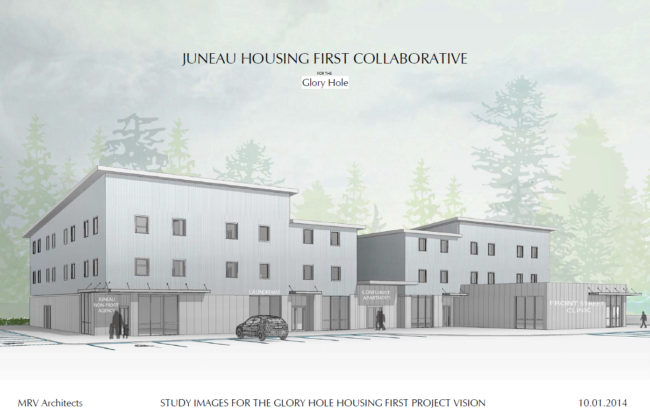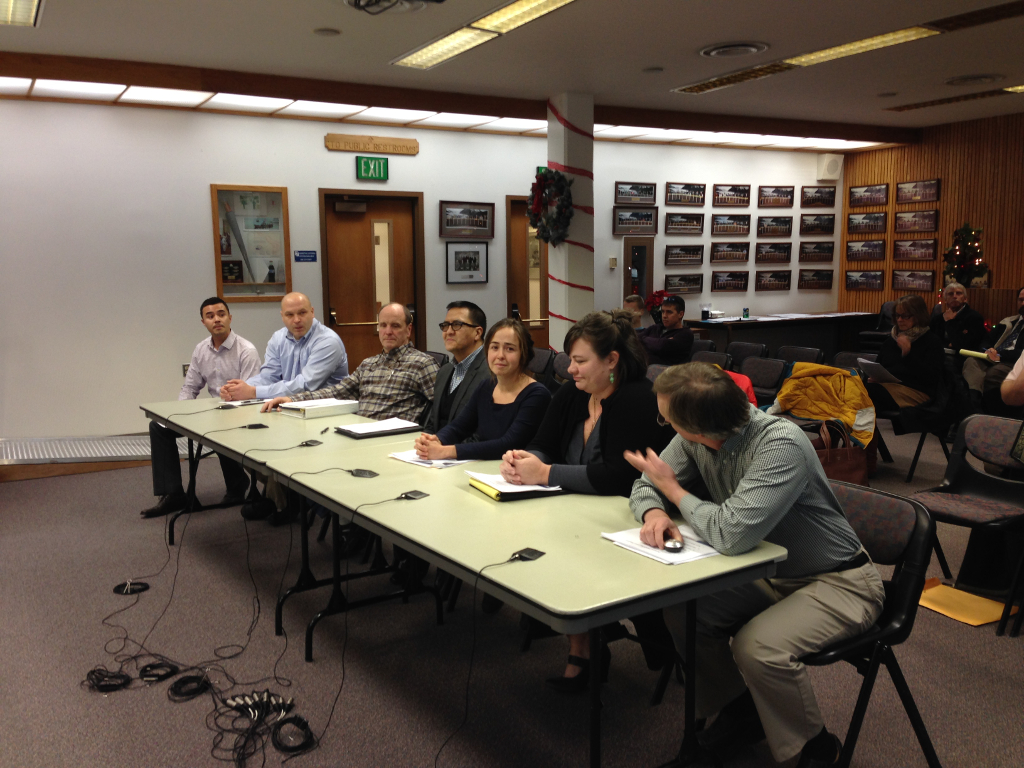
The Juneau Assembly last night unofficially committed $1.5 million to help fund a Housing First project in the capital city.
Supporters hope the project – which would be the third of its kind in Alaska – will provide a stable place to live for about 30 chronically homeless people. They also hope it eventually will house nonprofits and social service agencies to help individuals out of homelessness.
Housing First proponents say if you give a homeless person a permanent, stable place to live, it’s easier to address what’s causing them to be on the streets in the first place. Whether it’s lack of income, drug or alcohol addiction, mental health issues, or something else, studies have shown the approach reduces the amount of time and money spent on expensive emergency services for the homeless.
But Mandy O’Neal-Cole with the Juneau Homeless Coalition says that’s not the best reason to support it.
“There are a lot of economic reasons to make this happen, but there are more human reasons to make this happen,” O’Neal-Cole told the Juneau Assembly Committee of the Whole.
The homeless coalition is one of several groups that have been working on a Housing First project in Juneau for the better part of two years. O’Neal-Cole works for AWARE, Juneau’s domestic violence and sexual assault prevention nonprofit.
“It’s a lot of people with a lot of different agendas. And the fact is that we all came together with this similar agenda to recognize that this is bigger than any one of us,” she said. “It’s more about all of us and what our responsibilities are to the people who need the most help.”
The Glory Hole emergency homeless shelter recently agreed to be the lead agency for the project, and Tlingit-Haida Regional Housing Authority agreed to donate land next to its offices in Lemon Creek where the facility could be built.
“We know this model works in other cities and we’re absolutely certain it’s going to work here in Juneau,” said housing authority president and CEO Ricardo Worl.

The proposed building would be constructed in two phases, with 32 efficiency apartments, a commercial kitchen and clinic space built in the first phase. Another 22 apartments as well as office space for social service nonprofits would be part of phase two.
The group estimates it needs $6.6 million to build phase one and $9.1 million to do both phases.
Glory Hole Executive Director Mariya Lovishchuk says they hope to get the project started with a $3.5 million Special Needs Housing Grant from the Alaska Housing Finance Corp. That money is in this year’s state budget, but Lovishchuk says it’s unlikely to be available again for the foreseeable future, given the state’s projected deficit of more than $3 billion.
“The time for this project is really now,” Lovishchuk said.
Anchorage and Fairbanks already have Housing First projects, which Lovishchuk says also bodes well for this being Juneau’s year to receive funding.
The Special Needs Housing Grant application is due Feb. 20.
The Assembly Committee of the Whole last night asked the City Manager’s office to prepare a resolution pledging $1.5 million for the project. While the Assembly still needs to vote to approve the resolution at its first regular meeting of 2015, members left little doubt that the vote would be just a formality.
“You have your commitment,” said Assemblywoman Karen Crane.
The Housing First group is also hoping to get funding for the project from the Rasmuson Foundation and other charitable organizations.
The facility is expected to cost about $870,000 a year to operate. More than half of the projected operating costs would come from AHFC vouchers, rental income and the Juneau Community Foundation.